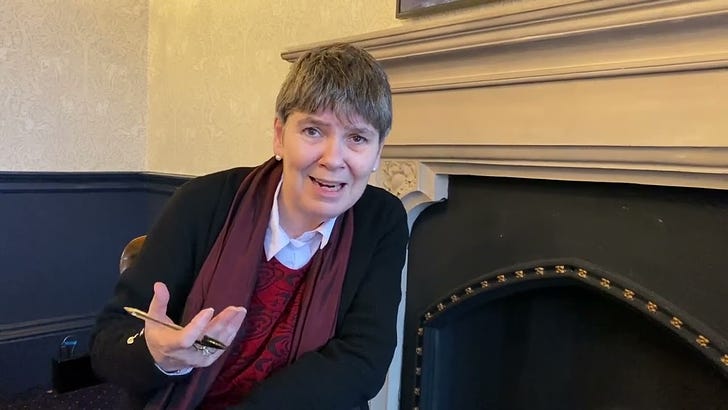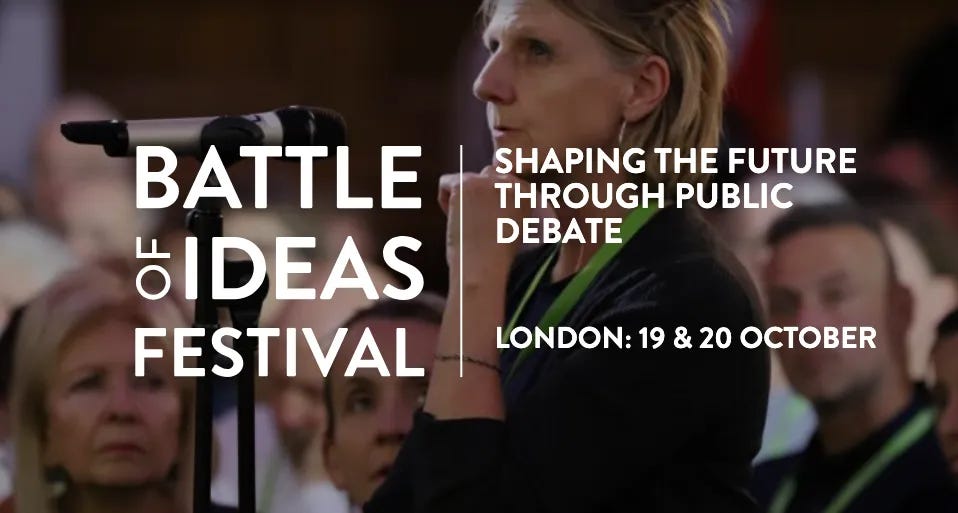Inside The Lords: parental alienation and conversion therapy
Claire Fox reports from a week inside Westminster, with a focus on how legislation is affecting family life.
Inside the Lords last week, I spent a lot of my time discussing the Victims and Prisoners Bill. My amendments related to women-only service provision. As usual, speakers from all sides were keen to say that they were championing all victims, with lots of rhetoric about supporting policies on violence against women and girls. But when it came to the question of making sure women-only spaces (like rape-crisis centres) stayed women only, there was silence - and even opposition.
I had to come back a couple of times to clarify some disgruntled, confusing and (at times) disingenuous responses from fellow Lords. The government has agreed to meet with Sex Matters, and both I and Lord Jackson tried to explain to the minister that simply 'leaving things up to the service providers' - or, the status quo, in other words - simply wouldn't cut it.
Later on, I made a speech pushing for data collection relating to criminal justice - which should be based on an individual's objective, material sex registered at birth. Thanks to the invaluable research by Keep Prisons Single Sex, we know different police forces are in a muddle in terms of how they record crime (I used their stats in my speech - worth looking up). Self ID, gender-recognition certificates, natal sex - there is no distinction made between these categories.
In fact, over the weekend there has been some coverage of Police and Crime Commissioner Matthew Barber’s comments criticising the police for using preferred gender identity, instead of sex, when reporting crime. A press release published by Thames Valley Police used Osareen Omoruyi’s self ID as a woman, instead of referring to him as a man who had been charged with two counts each of ‘sexual assault by penetration and causing/inciting a child to engage in sexual activity’. This kind of real misinformation means that crime statistics are not consistent or reliable, and the public can be misled about who are the perpetrators, and who are the victims.
At a different part of the discussion, relating to victims and marital disputes, I observed an attempt to suggest that anyone who claimed ‘parental alienation’ was problematic, quoting child protection in relation to domestic abuse or sexual violence. For those that don’t know, parental alienation is basically when you turn the kids against one of the parents - usually dad - and discussion of this Bill was in danger of demonising dads who simply want access after a marital breakdown or dispute.
Parental alienation might be a pseudo- medicalised term, but it does describe something real. I wasn’t keen on putting into law the idea that victims can never themselves be guilty of (for example) alienating children from one parent using false narratives. I decided that I wanted to speak to try to get some more detail on what this all really meant. In fact, it led to a very interesting discussion explaining what can go on in family courts.
Later on in the week, we turned to a private-member’s Bill on conversion therapy. Supporters of the Bill had made an effort to say that parents or priests or therapists wouldn't be censored by the legislation, but the wording remains so vague that it’s entirely possible that all of those things would happen - that a parent would be criminalised for refusing to immediately affirm their child’s gender identity. The discussion was about two-to-one against the Bill, so it was quite an interesting experience of solidarity.
And notably, some of the speeches in favour of the Bill (especially from Ruth Hunt, who used to run Stonewall) were very good, and it was important to hear the opposite side laid out properly, acknowledging that there was a toxicity to the way this debate had been approached. The worst speeches were from Lords who weaponised the controversy over Rishi Sunak’s comments in PMQs, using the mother of Brianna Ghey to suggest that anyone who opposed the Bill was transphobic.
It seems to me that one of the biggest dangers of this Bill is that we send a message to young people that anyone who doesn’t affirm their identity - or indeed all adults in their life - are a threat to them. But it is the job of adults to challenge children’s expressed desires - being a parent means being confident in knowing that you know best. If a young person says, ‘I hate the body I have and want to destroy it’, affirming that would be surely disastrous. But this Bill won’t stop with the family; the accusation of ‘conversion therapy’ will be used against speakers at universities and elsewhere to cripple gender-critical thinkers. We will continue to discuss the issue this week - as well as more on the Rwanda Safety Bill. See you then.
Early-bird tickets are now available for the Battle of Ideas festival 2024, which will take place at Church House, Westminster on Saturday 19 and Sunday 20 October. Get your tickets here





